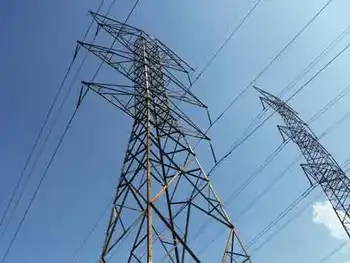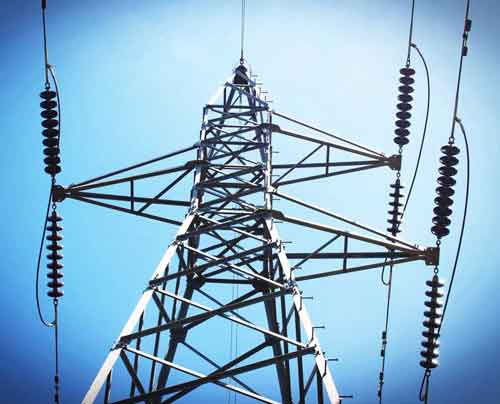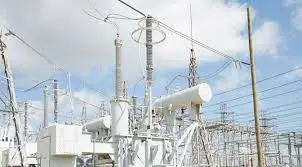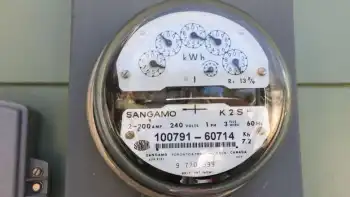DTE Energy to launch advanced metering program
Itron, a leading technology provider for the energy industry based in Liberty Lake, Wash., has been contracted to provide the equipment and implement the program. Itron will begin an initial installation in Grosse Ile Township and eventually install 30,000 new electric meters and gas meter modules for system evaluation and performance testing. Full deployment of the advanced metering system will begin in 2009, subject to successful performance test results.
The program incorporates technology that allows electric and natural gas meters to be read remotely and provide a wide range of benefits to customers, as well as operational savings through increased efficiencies to DTE Energy.
Called Advanced Metering Infrastructure (AMI), the $350 million program will be implemented over the next six years and serve as a platform to eliminate manual meter reading, provide remote monitoring of the electric distribution system and enable customers to manage their bills by tracking their consumption and demand via the DTE Energy web site.
"AMI has been proven to provide wide-ranging operational and customer benefits," said Robert J. Buckler, Detroit Edison president and chief operating officer. "This technology will be a major driver for service quality and provide more options for our customers to manage their energy bills."
DTE Energy has nearly 4 million electric and gas meters scheduled to be read every month, although some go unread because of severe weather, dogs, locked gates or other access problems.
"With AMI we will be able to achieve more than a 99 percent daily meter reading rate, which will eliminate the vast majority of estimated bills," Buckler said.
After the system testing and evaluation process has been completed, installation would spread throughout Detroit Edison's and Michigan Consolidated Gas Co.'s service areas on a community-by-community basis. Every electric meter in Southeast Michigan would be replaced with solid state meters having no rotating dials, and every gas meter would be modified with an AMI module. Customers would be notified when meter changes are scheduled in their communities.
Besides more accurate meter reading, AMI will provide customers these benefits:
• Remote monitoring of the distribution network which will enable faster and more reliable power outage detection and restoration. In addition, the system will detect low voltage situations impacting a customer's service.
• An ability to track consumption and demand, and provide assistance to adjust consumption to align with budgets, as well as a choice of billing cycles to better meet customers' cash flow requirements.
• Identification of individual service problems that may not be immediately apparent behind a circuit-wide problem.
AMI also will provide DTE Energy with enhanced energy theft/meter tampering detection and the ability to reconnect and disconnect service remotely.
One of the main challenges in implementing the system is visiting every DTE Energy customer — especially customers whose gas and/or electric meters are inside — to change out or modify the meters. About 20 percent of DTE Energy meters are inside homes and businesses.
"We're going to communicate early and often so our customers know when to expect us," Buckler said. "The technology is something we want our customers to benefit from as quickly as possible."
DTE Energy contracts for meter reading services, which will be phased out over the six-year implementation period. This gradual phase-out will provide ample time to minimize the impact on meter readers. The company has met with its unions and will make reasonable efforts to provide other job opportunities within the company.
Related News
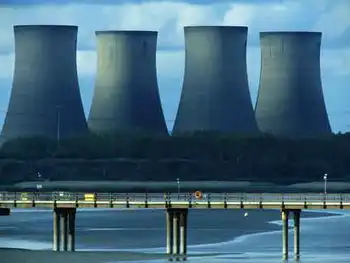
Can Europe's atomic reactors bridge the gap to an emissions-free future?
PARIS - Shaken by the loss of Russian natural gas since the invasion of Ukraine, European countries are questioning whether they can extend the lives of their ageing nuclear reactors to maintain the supply of affordable, carbon-free electricity — but national regulators, companies and governments disagree on how long the atomic plants can be safely kept running.
Europe avoided large-scale blackouts last winter despite losing its largest supplier of natural gas, but industry is still grappling with high electricity prices and concerns about supply.
Given warnings from the International Energy Agency that the coming winters will be particularly at risk from a…


